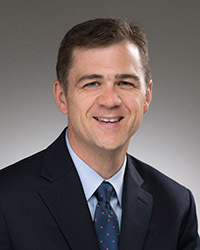
Like every political science professor, I have had the following conversation countless times.
“What do you do?”
“I’m a professor.”
“Oh, in what subject?”
“Political science.”
At this point, the other person is not sure what to say. After all, our mothers all taught us never to discuss politics in polite company. Following an awkward pause, the response is usually something like:
“Well, given the news these days, there must be a lot to keep you busy.”
At this point, I always smile and say, yes, there is indeed a lot to keep me busy. And then, to the relief of the other person, the conversation turns to the weather.
While research in political science is not necessarily like an episode of Law and Order and “ripped from the headlines,” as a field of study we do speak to contemporary issues. We go beyond the headlines to explain the politics of the world around us.
In some cases, that is by studying the present. Why do some nations become democratic? Why causes conflict between, and within, nations? Why did a particular election turn out the way it did?
In other cases, it is by studying the past. How did women vote after suffrage? Why did European nations create the European Union? What did the framers mean by the words in the U.S. Constitution?
In still other cases, political scientists study the great thinkers of the past, whose timeless writings apply now as much as ever.
But beyond the research they do, our faculty members are busy in other ways. My colleagues are teaching innovative undergraduate courses—from simulating civil wars, to having students develop their own public opinion surveys, to lobbying legislators at the Indiana state capital. They are mentoring graduate students in their cutting-edge research.
And a number of political science faculty hold leadership positions across the university, including the Nanovic Institute for European Studies, Kroc Institute for International Peace Studies, Kellogg Institute for International Studies, Institute for Educational Initiatives, Center for Social Research, Ford Family Program in Human Development Studies and Solidarity, Department of Africana Studies, Tocqueville Program for Inquiry Into Religion and Public Life, and the Rooney Center for the Study of American Democracy.
I am grateful to be at the helm of a dynamic group of scholars who through their teaching, mentoring, and research not only keep busy, but bring their expertise to bear in understanding and explaining the political realm. In some cases, that expertise even informs coverage of the news, as reporters around the world often call upon our faculty for their insight. They are thus truly speaking to contemporary issues, in real time.
All of this is only the beginning. Our newsletter provides many further examples of the good work being done by the faculty and students in Notre Dame’s Department of Political Science. As you can see, we have a department that is large enough to provide a broad education in political science, but small enough to allow our students to study their passions in depth.
So, yes, there is a lot to keep us all busy.
David Campbell
Chair, Department of Political Science